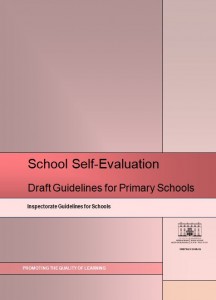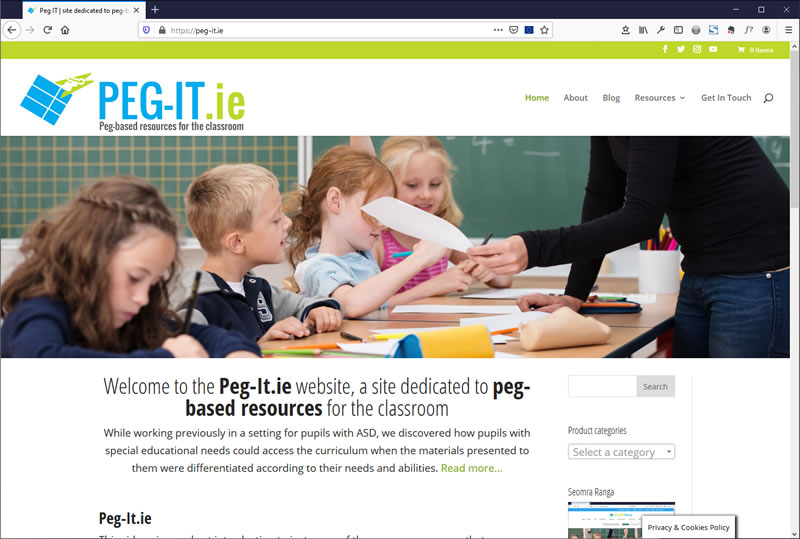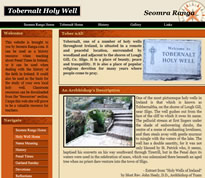 The Inspectorate recently published “School Self-Evaluation: Draft Guidelines for Primary Schools“. The Guidelines are intended to support schools to engage in robust self-evaluation of teaching and learning. Its purpose is to allow schools to take the initiative in improving the quality of education provided to its pupils. The Guidelines also offer a framework for school self-evaluation that places the process in the context of school development planning and the school improvement plan. The Guidelines are intended to assist schools to:
The Inspectorate recently published “School Self-Evaluation: Draft Guidelines for Primary Schools“. The Guidelines are intended to support schools to engage in robust self-evaluation of teaching and learning. Its purpose is to allow schools to take the initiative in improving the quality of education provided to its pupils. The Guidelines also offer a framework for school self-evaluation that places the process in the context of school development planning and the school improvement plan. The Guidelines are intended to assist schools to:
• Gather the information or evidence needed to enable them to identify accurately what is working well and where improvement is needed
• Report on their school self-evaluation processes
• Develop improvement plans
The Guidelines define School Self-Evaluation as (SSE) “a collaborative, reflective process of internal school review whereby the principal, deputy principal and teachers in consultation with the board of management, parents and pupils engage in reflective enquiry on the work of the school”. It is intended that the Guidelines will focus on key dimensions of school provision as follows: Teaching and Learning; Management and Leadership; Support for Pupils, however, the focus of self-evaluation in this publication is Teaching and Learning. Under the Teaching and Learning Dimension, three “Perspectives” are identified: The quality of curriculum delivery and teachers’ practice; The quality of pupils’ learning experiences; The quality of the learning outcomes for pupils. Under these perspectives a further ten “Themes” are to be evaluated. Templates for “Quality Statements” on each of these ten themes are provided. Schools will be asked to engage in the following School Self-Evaluation process:
- Gather Evidence
- Make judgements about strengths and areas for improvement
- Write a School Self-Evaluation Report
- Devise a School Improvement Plan
- Implement and monitor the School Improvement Plan
At 72 pages, this is a long document and will take some time for school staffs and principals to digest. It has huge implications especially for the role and workload of the principal, but also for teachers who will have to engage in a much more robust evaluation of their work practices. The Guidelines are at a Draft stage at the moment and the Inspectorate will welcome your comments and will note your views when finalising the Guidelines.
What are your views on the implications of these Guidelines? Do you agree or disagree with their introduction? Please join the debate by leaving a comment below. (If it’s your first time to comment on the site, your comment will not appear automatically until it’s been verified that the comment is not spam. After that, you’ll be able to comment as much as you wish.)





